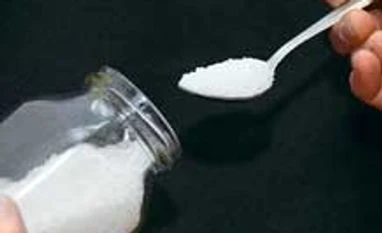Industry leader Bajaj Hindusthan reported a quarterly loss of Rs 538.61 crore for Jan-Mar '15 quarter on a turnover of Rs 1181.40 crore. In the corresponding quarter last year, however, the company had posted a net loss of Rs 423.90 crore on its net sales at Rs 1324.85 crore.
The country's largest sugar producer has 14 plants with aggregated cane crushing capacity of 136,000 tonnes crushed per day, and alcohol distillation capacity of 800 kilo litres per day.
"Realisation from sugar bottomed out to Rs 24.50 a kg during the last quarter, Rs 7-8 a kg lower than the cost of production. Being a volume based company, we have to incur losses considering around 80% of income coming in from sugar sales," said a company spokesperson.
Similarly, Triveni Engineering posted its net loss at Rs 85.60 crore for Jan-Mar '15 quarter as against Rs 59.52 crore loss reported in the same quarter last year. Net sales, however, fell marginally to Rs 444.46 crore versus Rs 454.99 crore.
While companies like Oudh Sugar Mills and Dalmia Bharat posted a sharp decline in their net profits, others in the field including Kesar Enterprise, Gayatri Sugars, and Rajshree Sugars turned red in the quarter.
Harish Vasudevan, Strategist, SVS Securities, believes that apart from fall in sugar prices, government's unfavourable policies have turned sugar sector bitter.
Kolkata - based Balrampur Chini also reported a 60% slump in its net profit to Rs 75.82 crore for the fourth quarter ended March 31 as compared to Rs 189.90 crore in the same period last year. Total income during Jan-Mar quarter in 2014-15 declined to Rs 658.32 crore from Rs 699.98 crore in the same quarter of previous year. The company attributed a slump in profit to rising expenses to Rs 583.90 crore in March '15 quarter from Rs 488.65 crore in the same period last year.
With the Uttar Pradesh government kept cane price unchanged at Rs 280 a quintal and offered an incentive of Rs 28.40 a quintal and waiver of other taxes benefiting of additional Rs 11.60 a quintal, sugar mills await the release of the fund. Also, the benefit of 12% excise duty waiver on ethanol supply from October 1, '15 is expected to benefit sugar mills only in the next crushing season.
More From This Section
With the government's effort to prevent sugar mills from permanent closure, 5% ethanol blending programme was mandated to expand it to 10%.
Thus, byproducts like ethanol and power protected sugar mills partly from incurring higher losses. As a consequence, SRS which largely depend upon refining of raw sugar and ethanol sales, posted a net profit of Rs 4.30 crore in March '15 as against a loss of Rs 88.30 crore in the same quarter previous year.
Narendra Murkumbi, managing director of SRS attributed to the turnaround to improved volume of branded sugar (Madhur) sales and enhanced contribution from byproducts.
Meanwhile, Bajaj Hindusthan spokesperson said that 20% share of marginal increase in realisation from byproducts cannot compensate loss in sugar business which shares 80%.
Sensing the need, Balrampur Chini plans to invest Rs 200 crore in its three units to enhance ethanol production capacity.
)